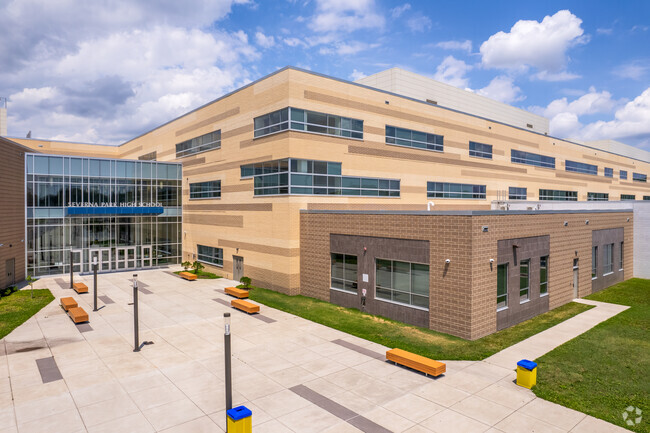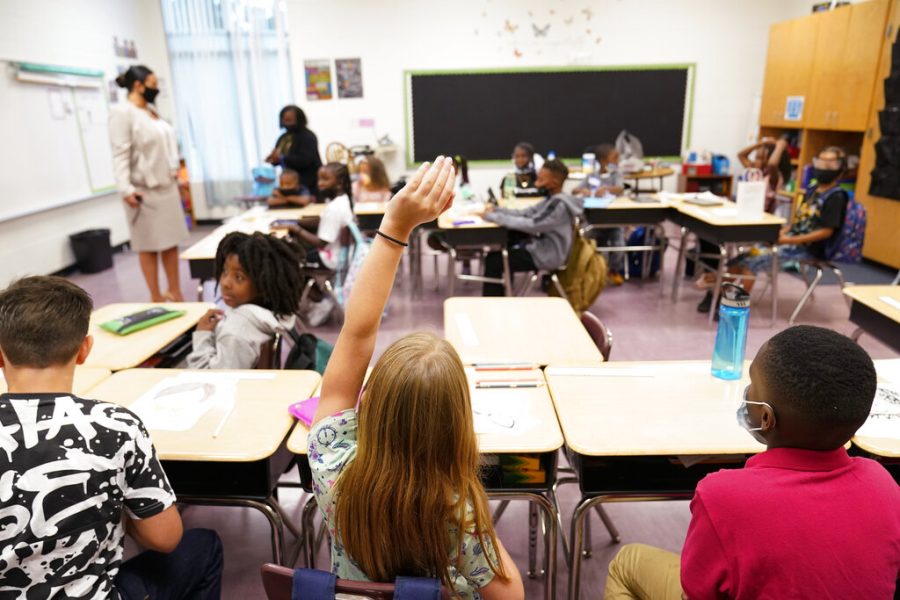How Schools Play an Important Function in Shaping Future Leaders and Pioneers
By incorporating project-based understanding and interdisciplinary researches, educational organizations challenge trainees to assess and manufacture complex information. Teachers offer as advisors, leading trainees and supporting their possibility, while extracurricular activities additionally establish leadership abilities and resilience.
Cultivating Important Thinking
In today's swiftly developing globe, promoting critical believing within universities has actually ended up being vital. As society grapples with increasingly complex global difficulties, the capability to examine, assess, and manufacture information is important. Institutions play a critical role in establishing these skills, preparing trainees to browse and deal with diverse issues with notified, reasoned decisions.
To cultivate important reasoning, teachers use numerous pedagogical techniques that motivate active knowing and intellectual involvement. Classroom discussions, problem-based knowing, and Socratic questioning contribute in advertising analytical and reflective thought processes. By challenging trainees to interrogate assumptions and consider multiple perspectives, these techniques make certain a much deeper understanding of subject past memorizing memorization.
In addition, incorporating essential believing throughout the curriculum reinforces its significance and applicability in diverse contexts. Topics such as mathematics, science, history, and literary works each deal unique possibilities to establish trainees' essential faculties. Analyzing historical events needs understanding and examining resources context, while scientific query demands strenuous hypothesis screening and evidence-based reasoning.
Inevitably, instilling essential believing abilities in pupils furnishes them with the cognitive tools needed for lifelong discovering and flexibility. It is with this foundational capability that future leaders will certainly be able to innovate, fix problems, and add meaningfully to culture.
Encouraging Imagination
Accepting imagination within instructional frameworks galvanizes trainees to assume past traditional borders and explore innovative options. By integrating creative undertakings and creativity workouts right into the educational program, colleges cultivate an environment where creativity and creative thought are valued. This strategy not only enriches the instructional experience but likewise furnishes pupils with the ability to tackle real-world challenges in novel methods.
School can foster imagination with varied ways such as project-based knowing, interdisciplinary researches, and the consolidation of arts and technology. Project-based learning, for example, motivates trainees to apply their understanding in sensible, typically joint, tasks that demand inventive problem-solving abilities. Interdisciplinary research studies enable pupils to draw connections between different topics, thereby widening their point of views and improving their innovative abilities.
Furthermore, providing pupils with possibilities to involve with emerging modern technologies, such as coding and electronic style, further nurtures their imaginative capacity. These tasks motivate students to experiment, stop working, and repeat, which are crucial parts of the creative process (Save Temecula Schools). By keeping an encouraging setting where trial and error is motivated, institutions can guarantee that trainees develop the confidence to go after innovative ideas
Fundamentally, nurturing imagination in instructional settings is indispensable for shaping future leaders and innovators qualified of dealing with complicated global problems with resourcefulness.
Encouraging Collaboration

Implementing group-based understanding components and cooperative projects permits pupils to experience the characteristics of teamwork firsthand. This not just he has a good point prepares them for the joint nature of modern-day workplaces yet additionally supports management high qualities as they typically need to tackle duties such as task supervisors or group organizers. In addition, cooperation in the class can break down social barriers and advertise inclusivity, ensuring that each trainee really feels valued and listened to.
In addition, incorporating technology can even more support joint initiatives. Devices like common digital work areas and interactive platforms allow students to interact successfully, even outside the classroom. As pupils create these collective skills, they are much better outfitted to deal with complex obstacles and introduce, preparing for their future roles as trendsetters and leaders.
Role of Educators as Mentors

Mentorship entails tailored attention, where instructors determine and nurture specific staminas and address weaknesses. Save Temecula Schools. Via one-on-one communications, instructors can customize their guidance and support to meet each trainee's distinct needs, promoting a feeling of confidence and durability. This individualized technique cultivates a development frame of mind, urging trainees to watch failures as chances for learning and growth
Moreover, teachers act as duty designs, demonstrating the values of empathy, perseverance, and honesty. Their attitudes and actions offer a blueprint for pupils to check over here mimic, instilling a sense of moral obligation and social recognition. By creating a inclusive and helpful class environment, educators make it possible for trainees to establish interpersonal skills that are vital for effective management.
Basically, the mentorship offered by teachers lays a foundational framework for the development of future leaders, equipping them with the understanding, skills, and worths needed to succeed in an ever-evolving globe.
Influence of Extracurricular Activities
When incorporated successfully into the instructional framework, extracurricular activities substantially enhance trainee development and management potential. These activities supply students with opportunities to discover rate of interests past the standard educational program, fostering a well-rounded skill set.
Pupils involved in songs, discussion, or drama clubs learn to assume critically and approach troubles from varied viewpoints. By teaming up with peers from different histories, students additionally develop empathy and communication abilities, crucial characteristics for future leaders.
Research study shows that pupils involved in such programs tend to have greater qualities and far better presence records. Hence, colleges that focus on a balanced technique to education and learning, incorporating robust extracurricular programs, are more most likely to generate innovators and leaders outfitted to meet the challenges of the future.

Verdict
Finally, institutions substantially form future leaders and trendsetters by supporting important thinking, creativity, and cooperation among students. Engaging pedagogical techniques such as project-based discovering and interdisciplinary studies play a crucial function in this growth. Educators, acting as mentors, give necessary assistance and support, while extracurricular tasks additionally boost leadership potential click this link and strength. By promoting a helpful setting that values specific staminas and teamwork, colleges outfit trainees with the necessary abilities to browse future obstacles and drive innovation.
As trainees establish these joint abilities, they are much better equipped to deal with intricate obstacles and innovate, laying the foundation for their future duties as pioneers and leaders.
By promoting critical thinking and analytic skills, instructors assist students navigate complex difficulties, preparing them for management functions in different fields.
By working together with peers from various histories, pupils also establish compassion and communication abilities, vital qualities for future leaders.
In conclusion, institutions significantly shape future leaders and trendsetters by supporting vital thinking, creative thinking, and cooperation among trainees. By cultivating a supportive setting that values specific strengths and teamwork, colleges furnish students with the needed skills to navigate future difficulties and drive technology.